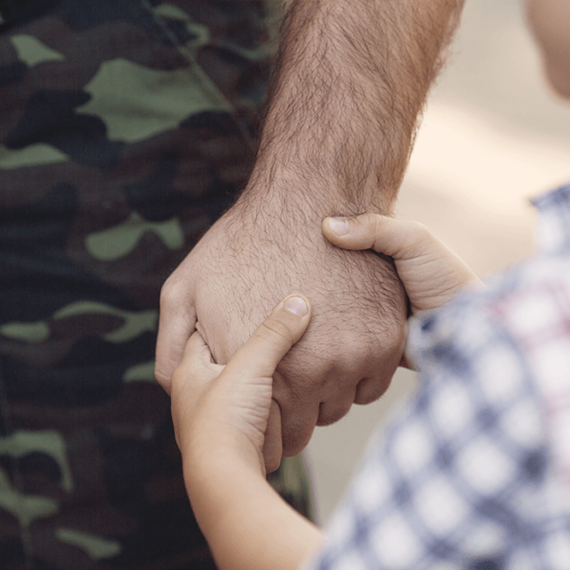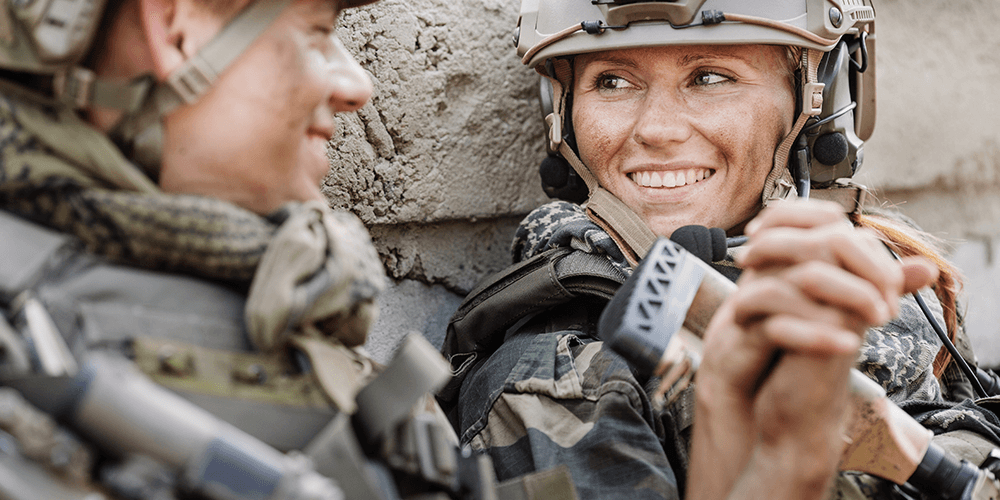
WHAT IS PTSD?
Post-traumatic stress disorder is invisible, but in many ways it is as difficult to overcome as severe physical wounds. PTSD can be caused by any dangerous or life-threatening event. The state of psychological distress experienced by someone with PTSD is often characterized by flashbacks and intrusive thoughts, depression, mood fluctuation, and detachment.
The vast majority of our soldiers in combat will experience or witness traumatic events such as injuries, attacks, and even the death of comrades.
Research shows that these events can cause the brain to behave in ways intended to protect itself from traumatic experiences. Often the right side of the brain, which is responsible for sensory perception, will become hypervigilant, constantly on the lookout for warning signs. These responses override the left side of the brain which is responsible for logical reasoning, which results in PTSD.


What is ptsd

What is ptsd-3

What is ptsd-4

How PTSD affects the family -4
LAUGHTER HEALS
Therapists can help troops overcome PTSD by revisiting their memories so they can process them rationally. But before this healing process can take place, the hypervigilance of the right brain must be subdued.
Research has also shown that laughter can be extremely helpful in calming hypervigilance. As Guy Strawder explained in his essay Laughter Helps, Laughter Heals: “Comedy appeals to the right brain’s emotional perceptions and its desire to feel joy and hope, and it is this desire for the reward of joy where the right brain permits the left brain’s awareness and processing power to comprehend the stories and the ‘punchline’.”
Laughter can enable the patient to move on from a state of hypervigilance to the next step of the healing process.
WHAT IS TBI?
Traumatic brain injury has come to be known as the signature wound of the Iraq and Afghanistan wars. According to information gathered from the Defense Medical Surveillance System and Theater Medical Data Store, more than 253,000 military personnel were medically diagnosed with TBI between 2000 and 2012. We believe there could be many more personnel who have been misdiagnosed or have gone undiagnosed. Healthcare professionals often overlook mild traumatic brain injuries, especially when a patient lacks visible wounds. TBI can be caused by loud sounds and explosions that cause the brain to rattle. The majority of those that suffer from TBI will also experience PTSD.
It isn’t only the soldier, airman, sailor or Marine whose lives can be altered by TBI; the families of our military heroes are wounded too. Relationship problems are one of the most frequently reported long-term consequences of TBI. A single word defines the heart of the TBI issue: shortage. There is a research shortage, an educational shortage, and an assistance shortage.
Laughs for the Troops is here to help increase awareness of TBI, and to help provide the support our troops need.

































